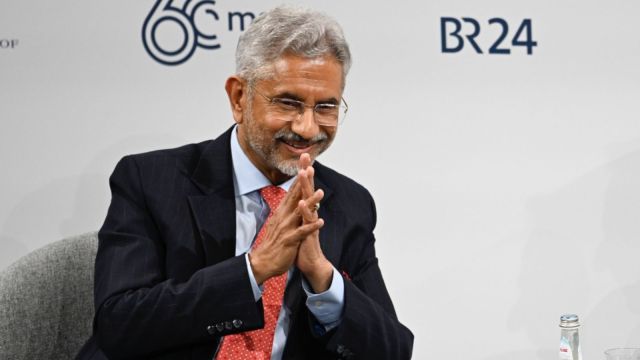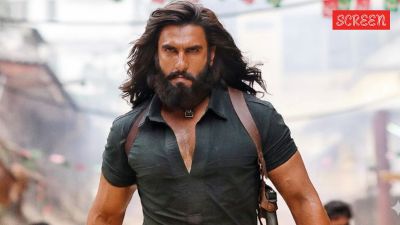
Jaishankar, who is attending the Munich Security Conference in Germany, said during a panel discussion with US Secretary of State Antony J Blinken and German Foreign Minister Annalena Baerbock: “There are different dimensions, different elements to this. Number one, we must be clear that what happened on October 7 was terrorism. No caveats, no justification, no explanation. It was terrorism.”
“Number two, (the) Israel response, it is important that Israel should be, should have been very mindful of civilian casualties, that it has an obligation to observe international humanitarian law,” he said.
“Number three, the return of hostages is today imperative. Number four, there is a need for a humanitarian corridor, a sustainable humanitarian corridor to provide relief. And eventually, there has to be a permanent fix, a long-term fix. Otherwise, we are going to see a recurrence. And I think today, certainly, India has long believed in a two-state solution. We have maintained that position for many decades and I think today many more countries in the world feel not just the two-state solution is necessary, but it is more urgent than it was before,” he said.X
Responding to questions on how Delhi was balancing its growing bilateral ties with Washington while continuing to trade with Moscow, Jaishankar said, “Is that a problem? Why should that be a problem? If I am smart enough to have multiple options, you should be admiring me. Is that a problem for others? I don’t think so… We try to explain what are the different pulls and pressures that countries have. It’s very hard to have that unidimensional relationship.”
“Different countries and different relationships have different histories. If I want to look at the US and Germany, it is rooted. There is an alliance nature to it. There is a certain history on which that relationship is grounded. In our case, it’s very different, so I don’t want you to even inadvertently give the impression that we are purely unsentimentally transactional. We are not, we get along with people, we believe in things, we share things, and we agree on some things but there are times when you are located in different places, have different levels of development, and different experiences all of that gets into that,” he said.
Story continues below this ad
“Life is complicated, life is differentiated, and I think it’s very important today. I agree with Antony (Blinken) which is: good partners provide choices, smart partners take some of the choices. But sometimes, there will be choices, you say I’ll pass on that,” he said.
“I think it’s important today to make a distinction between being non-West and anti-West. I’d not only characterise India as a country, which is non-West but which has an extremely strong relation with the Western countries, getting better by the day. Not everybody necessarily in that grouping might qualify for that description, but the contribution the BRICS has made, if one looks at G7 and how it evolved into the G20,” he said.
“I think, in a way, of those additional 13 members who came into this bigger grouping, 5 of them are BRICS members. The fact that there was another group which was meeting regularly and discussing at the meeting, I think certainly was input into the expansion of G7 into the G20. So, I think we did our service to the world,” he said.
On the sidelines of the 60th edition of the Munich Security Conference, Jaishankar met Bangladesh Prime Minister Sheikh Hasina, US Secretary of State Antony Blinken, UK Foreign Secretary David Cameron, German Foreign Minister Annalena Baerbock, Greece Minister of National Defence Nikos Dendias, Argentina Foreign Minister Diana Mondino, Canada Foreign Minister Melanie Joly, Peru Foreign Minister Javier Gonzalez-Olaechea, Bulgaria Deputy Prime Minister and Minister of Foreign Affairs Mariya Gabriel and Josep Borrell Fontelles, the High Representative of the European Union for Foreign Affairs and Security Policy/Vice-President of the EU Commission.
Story continues below this ad
After meeting Canadian Foreign Minister Joly, Jaishankar said that he discussed with her the “present state” of bilateral ties and current global issues.
In a post on X, he said, “Our conversation understandably focused on the present state of our bilateral ties. Was also useful to exchange views on the global situation.” Joly, in her post on X, said they had “a frank discussion on Canada-India relations and the current global issues, including Russia’s illegal invasion of Ukraine.”
After meeting the Bangladesh Prime Minister, Jaishankar said, “Honoured to call on Prime Minister Sheikh Hasina of Bangladesh. Congratulated her on the renewed mandate. Appreciated her guidance for taking India-Bangladesh Maitri forward.”
He also met Tedros Adhanom Ghebreyesus, Director-General of World Health Organisation. India hosts the WHOSEAR, the top health body’s South East Asia Region’s headquarters.
Story continues below this ad
“Glad to (have) met DG World Health Organization @DrTedros. Discussed traditional medicine and pandemic preparedness. Thank you Tulsi bhai!” he posted on X.
Jaishankar also met German FM Baerbock and posted, “So good to meet my German colleague FM @ABaerbock on #MSC2024 sidelines. A wide-ranging conversation on global challenges and the pathway ahead. Appreciated her insights and assessments. Also reviewed preparations for the next meeting of our Inter-Governmental Consultations.”









